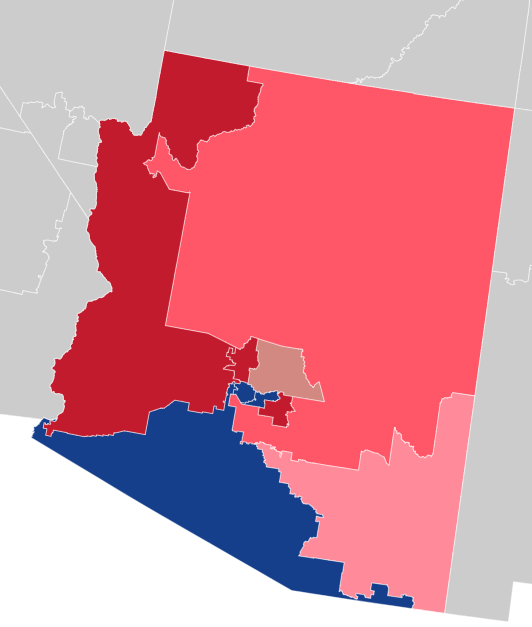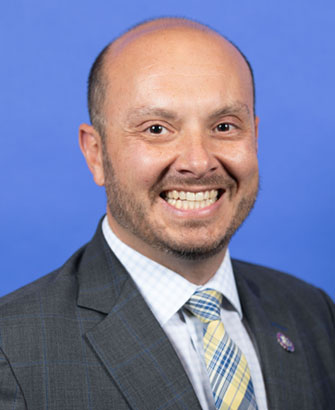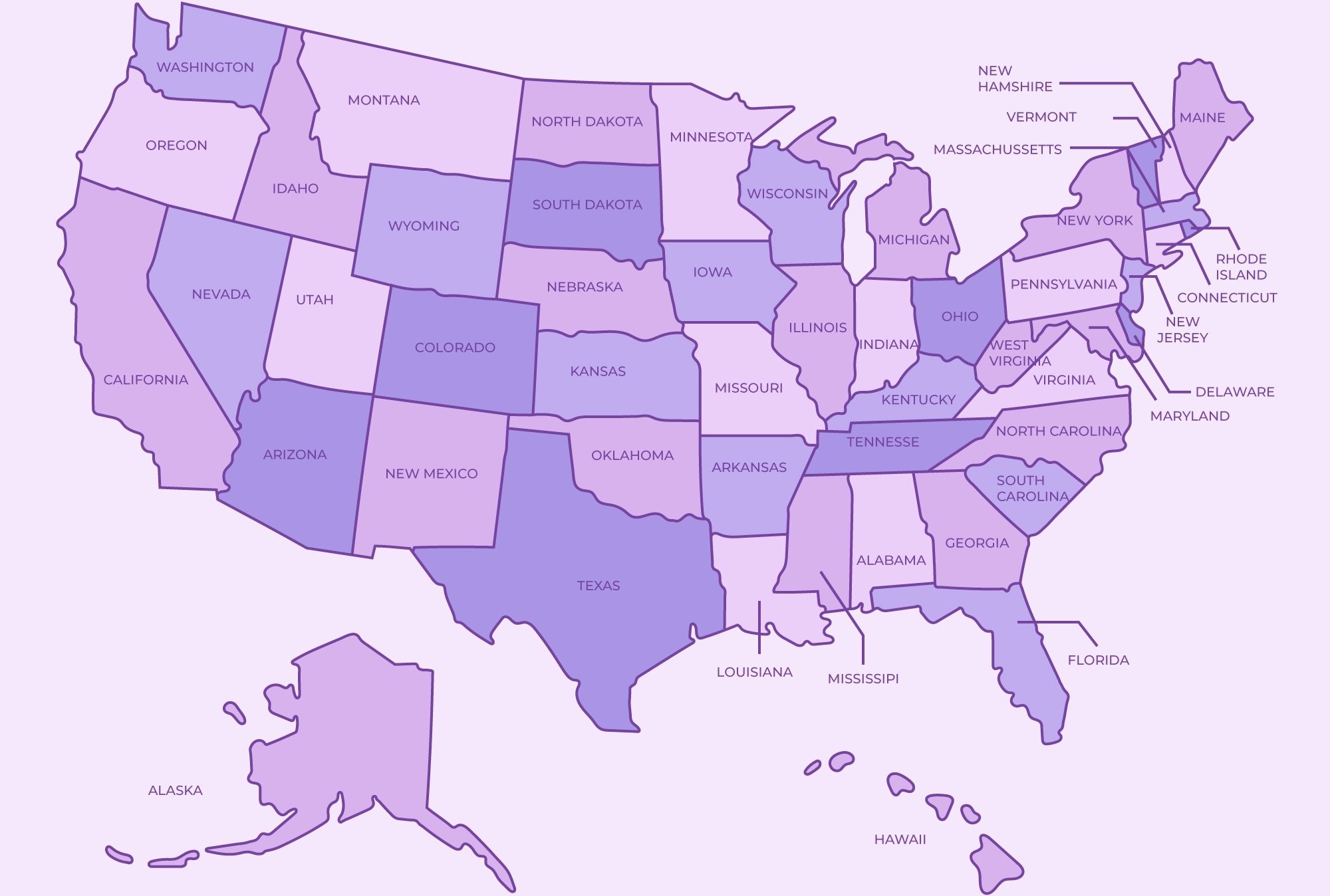Cover credit – freepik
National
With less than 100 days until the November 5 elections, states are now holding their primary contests, which will undoubtedly carry more attention and ramifications than the presidential primaries and caucuses held earlier this year.
Arizona held its primaries on Tuesday night, establishing nominees for the open U.S. Senate seat and several competitive U.S. House races.
Senator Kyrsten Sinema (I) is not seeking a second term. Elected as a Democrat in 2018, Sinema registered as an Independent in 2023, but continued to caucus with Senate Democrats. Sinema became a pariah in Democratic circles, as she and her moderate colleague Joe Manchin (I-WV) became two votes against multiple pieces of liberal legislation and Democratic attempts at changing Senate procedures, such as eliminating the filibuster.
Originally a three-way race, Sinema dropped out in the spring, leaving it an effective two-way contest between presumptive nominees. Those nominees earned their official statuses on Tuesday night: Congressman Ruben Gallego (D, AZ-03) and television anchor and 2022 gubernatorial candidate Kari Lake (R).
Lake unsuccessfully sought the governorship in 2022, narrowly losing to then-Secretary of State Katie Hobbs (D).
Gallego represents a deep-blue Phoenix-based district, also containing Glendale and Tempe, that sits at nearly twenty-five points left-of-center. With Sinema out of the picture, some think Lake’s stances on certain issues are out of touch with increasingly-swingy Arizona, a prime swing state this cycle and a regular marquee battleground that has hosted a competitive Senate race every two years since 2018. Gallego was unopposed for the Democratic nomination, essentially giving him a head start in a state where the GOP’s intraparty fighting has cost them winnable races in recent years.
Lake took just over 50% of the vote as of press time, defeating Pinal County Sheriff Mark Lamb.
In the U.S. House, Arizona’s closest 2022 race is shaping up to be yet another competitive one, but the Democratic field was uncertain as of press time.
AZ-01 covers northeastern Maricopa County, taking in suburban Phoenix and Scottsdale. Congressman David Schweikert (R) has represented Arizona in Congress since 2011 and has survived relatively close elections in 2018 and 2020. However, Schweikert barely got by in 2022, winning by just under one percentage point in this left-trending district. The district became about half as Republican as it was last decade after redistricting.
Schweikert won his primary handily, dispatching two challengers.
Amish Shah (D) narrowly leads the wide primary field of six Democratic contenders. Shah served in the Arizona House from 2019 to 2024. He resigned his position in February to focus on the U.S. House campaign.
Any path to a House majority for either party likely includes AZ-01. Suburban, educated, and diverse, it’s quickly becoming a microcosm of the country at-large. AZ-01 is also one of eighteen districts that, under the current lines, would have backed Joe Biden (D-DE) for president while simultaneously being represented by a Republican.
In AZ-02, freshman Congressman Eli Crane (R) easily won renomination over a primary effort that functions as retribution for his vote to oust former Speaker Kevin McCarthy (R, CA-20) last year. Crane was one of eight Republicans to back the Speaker’s ousting, prompting McCarthy’s supporters to feed him a challenger.
AZ-02 takes in all of northeastern Arizona and includes parts of suburban Phoenix, as well as Flagstaff and twelve Native American reservations, including the Navajo Nation. Crane defeated blue-dog incumbent Tom O’Halleran (D) in 2022 by a comfortable eight-point margin. With no vetted incumbent to take down and two years of incumbency himself, Crane should be in a decent position for re-election.
Another hotly-divided primary unfolded Tuesday night for the aforementioned AZ-03, a deeply-blue Phoenix-based seat being vacated by Congressman Gallego in his run for a Senate seat that may very well determine partisan control of the body. Whichever Democrat wins the primary will be heavily favored in November.
In AZ-08, an interesting and rare political situation has come to a head. Congresswoman Debbie Lesko (R) is retiring, and the race to succeed her not only brought six Republican candidates, but a vicious rivalry between two former statewide candidates.
Former prosecutor Abe Hamadeh (R) and venture capitalist Blake Masters (R) were locked in a close race for the primary win on Tuesday night. Hamadeh ran for Arizona Attorney General in 2022 and Masters ran for U.S. Senate the same year; both lost.
However, the dynamic of the race shifted when Trump initially endorsed Hamadeh in December. But Trump made an unusual update last weekend endorsing both Hamadeh and Masters.
Trump’s dual endorsement prompted the theories that a vote-splitting effect could give way to a new candidate. Arizona House Speaker Ben Toma (R) sits narrowly behind Masters in third place, while disgraced former Congressman Trent Franks (R) appears to have handily lost an underdog comeback.
Whichever Republican emerges victorious from the bitter primary is virtually guaranteed this House seat. Based entirely within Maricopa County, the seat carries parts of Phoenix, Glendale, Peoria, Surprise, and Sun City. Lesko cruised to re-election in 2020 and was unopposed in 2022.
Finally, Maricopa County Recorder Stephen Richer (R) appears to be in a tight battle for renomination, as State Representative Justin Heap (R) has a three-point lead over Richer with 96% of precincts reported as of press time. The controversy of this race stems from claims of election fraud and a lack of trust in Arizona’s electoral system over the last two cycles. Richer has been locked in a defamation lawsuit against Kari Lake, who alleges Richer helped steal the 2022 gubernatorial race from her.
Maricopa County constitutes 60% of Arizona’s population and is the nation’s fourth-largest county.

State
Governor Kathy Hochul (D) has announced $350 million in supplemental payments for moderate- and low-income residents, with more than one million New York families set to receive a check.
“Child care has gone up 20%, and I think it’s not a news flash that wages have not kept up with that,” said Hochul. “The strain on working families is too much, and we’re losing families who are going elsewhere where they don’t have the same challenges, and that actually threatens New York state’s long-term viability.”
All parents who qualified for the Empire State Child Tax Credit in 2023 and filed their taxes on time will automatically receive a check in the mail. Eligible applicants are: married couples jointly making $110,000 or less, a single parent making $75,000 or less, and married couples filing separately who make $55,000 or less. The payments are set to range from 25% to 100% of the amount of the taxpayer’s Child Tax Credit for the last year, with the specific percentage based on family income.
“One million New York families will be receiving a check in the mail by the end of August. Depending on your income and size of family, some people will receive $330 per child. You have three children, that’s $1,000 in your pocket,” said Hochul. “New Yorkers don’t have to do anything to receive this payment. No forms, no hoops to jump through. It’s just going to come to them.”
The payments going out this month are in addition to the 2023 tax credits that families already received. The program was expanded last year during state budget negotiations. The expansion includes children younger than four years old, adding 600,000 children to the program.

Local
In congressional campaign news, Congressman Nick LaLota (R, NY-01) has entered the third fundraising quarter with nearly $2.2 million cash on hand.
LaLota enters the general election with a significant war chest, and a cash-on-hand advantage over former CNN commentator John Avlon (D-Gramercy Park). Avlon reported just under $600,000 for the second quarter.
“Since day one, I have made this campaign and this movement, about the people of Suffolk County, not partisan politics and meaningless divisive rhetoric. While CNN host and Manhattan resident John Avlon continues to raise money from his millionaire neighbors in the city, I am proud to have earned the support and trust of so many hard-working Long Islanders,” said LaLota. “With our financial advantage, superior message, dedicated manpower, and efficient mechanics we are feeling optimistic about our prospects in November. The mission is clear: to win in November so that in January, we can secure our border, fight inflation, and steer our great nation back on track to help Long Island families.”
In congressional news, the U.S. House passed the Water Resources Development Act (WRDA) with bipartisan support. The legislation will authorize studies and projects within the U.S. Army Corps of Engineers Civil Works mission areas, including navigation, flood damage reduction, hurricane and storm damage reduction, shoreline protection, and ecosystem restoration.
Congressman Andrew Garbarino (R-Bayport) (pictured below) added language to the final bill that would aid flood mitigation and flood risk management efforts in NY-02.
Garbarino’s added language would authorize repair and restoration work for storms that damage the Fire Island Inlet to Montauk Point Project, as well as the Fire Island Inlet and Shores Westerly Project. Repairs for both projects would not typically qualify for emergency declarations, as qualification previously required demonstration that the storm was “extraordinary.” Previously, repairs via emergency declarations could only be obtained if the areas were damaged by nor’easters.
Congressman Garbarino also secured the authorization of feasibility studies for flood risk management projects for the towns of Babylon, Brookhaven, and Islip, hurricane and storm damage risk, reduction, navigation, and ecosystem restoration in Babylon and Brookhaven, and a project for coastal storm risk management and flood risk management near Tobay Beach in the Town of Oyster Bay.
“Long Island’s South Shore has been heavily impacted by recent nor’easters which eroded local beaches, endangered homes and public structures – from boardwalks to playgrounds – and even left emergency vehicles unable to traverse the eroded beaches to get where they are needed. Each passing storm increases the damage to our shoreline,” said Garbarino. “Timely renourishment is necessary to prevent further deterioration and the current renourishment schedule is not adequate to meet the needs of our South Shore communities. That’s why I advocated for the inclusion of language in WRDA that would allow for emergency renourishment in the wake of future storms and further protect Long Island beaches from erosion and flooding. I am pleased to have had my proposal pass the House and I thank my colleagues for their support of this critical issue.”
The WRDA (H.R.8812) passed 359-13, with 59 members not voting. The bill received the support of 177 Republicans and 182 Democrats. 30 Republicans and 29 Democrats did not vote.
Congressman LaLota also voted in favor of the bill.




